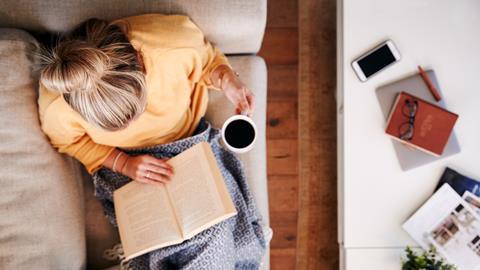With the amount of time we have gained since lockdown started on 23 March, it seemed natural to want to take advantage of these precious extra hours to be productive.

Social media has been littered with tales and images of baking attempts, book reviews and ventures of learning a new skill.
It is nothing short of commendable to put your hand to learning something new or improving an existing skill during this time.
However, it is equally important to remember you are living through a pandemic and dealing with the pressures and stress that come along with it. You deserve a break.
Living with stress caused by a crisis of this nature, and the understandable anxiety that accompanies it, can have a huge negative effect on mental health.
According a University of Sheffield survey, a vastly high percentage of people have experienced a heavy toll on their mental health since lockdown was first announced - spiking the day of the prime minister’s initial update.
On 24 March, a worrying 38% of survey participants reported significant depression and 36% reported significant anxiety.
When looking at gender, women experienced greater effect on their mental health. The study showed women were exhibiting more feelings and symptoms of anxiety and depression at 25% and 23% respectively. 18% of men showed clinical symptoms of anxiety and 21% for depression.
In feelings of stress, the impact was felt more equally between men and women at 19% of men and 15% of women.
These figures, although less dramatic as of late, are stark reminders to pay more and closer attention to our mental health and wellbeing and proactively address areas which may be a detriment to an otherwise healthy mind.
This especially could not be more important now when we have all had to confront a huge amount of loss in both our personal and professional lives.
A quarter of the UK workforce – around 7.5 million people – have been furloughed and those who haven’t have either found themselves on the frontline or turning their kitchen table into a makeshift office.
Humans, by nature, are not wired for uncertainty, and it could be said that this applies even more so to those working within the legal profession. Identifying future obstacles and how to resolve them, assessing risk, ironing out uncertainties are often, if not always, part of a normal day for a solicitor.
Therefore, the current situation could then prove even more challenging to cope with and have even greater negative impact. Much the same can be said for the lack of relaxation in billing targets.
It’s a lot to contend with and that isn’t even all of it. Maintaining a healthy work/life balance, financial worries, gripping on to some form of social life, parenting – the list goes on.
Making sure you are prioritising your mental health during this pandemic is not a waste of time and there is no better opportunity to do this than Mental Health Awareness Week.
Aptly, the theme for this year’s Mental Health Awareness Week is kindness which the world would struggle to have enough of right now.
I’m sure the first thought you had when reading the word kindness was how you could do something for someone else. While I would encourage you to do so, you should also ensure you are being kind to yourself.
As we return to normal, albeit a new kind of normal, it’s still paramount to focus on your wellbeing. Be kind to yourself. Make sure you’re sleeping, take some 'you time' and don’t feel pressured to come out of this and be transformed in some way. It’s enough that you have come out of this at all.
While it can be beneficial to your mental health to find ways to be productive, feel accomplished and work hard, it is also important to allow yourself some time to adjust and to relax. That may well be spent learning to play guitar, cooking a new recipe or practising yoga on your lunch break but, it’s okay if it isn’t.
For those concerned about how the coronavirus is affecting a specific area of law, revenue or business continuity, the Law Society’s coronavirus advice page contains guidance on a wide range of legal issues.
The Junior Lawyers Division has also produced a blog on junior lawyers’ mental health.
If you would like to read more about how mindfulness can be beneficial to your wellbeing, the Mindfulness in Law group have written an article exploring this.
To find out how returners have been impacted by COVID-19, you can read this article by one of the Law Society’s Back to Law Ambassadors.
If you need to speak with someone about your mental health LawCare are an independent charity focused on supporting members of the legal profession. Visit their website to get in touch.
For more information on the findings of the survey conducted by the University of Sheffield, please click here.
Aimey Sherwood, Diversity & Inclusion Team, The Law Society
































No comments yet